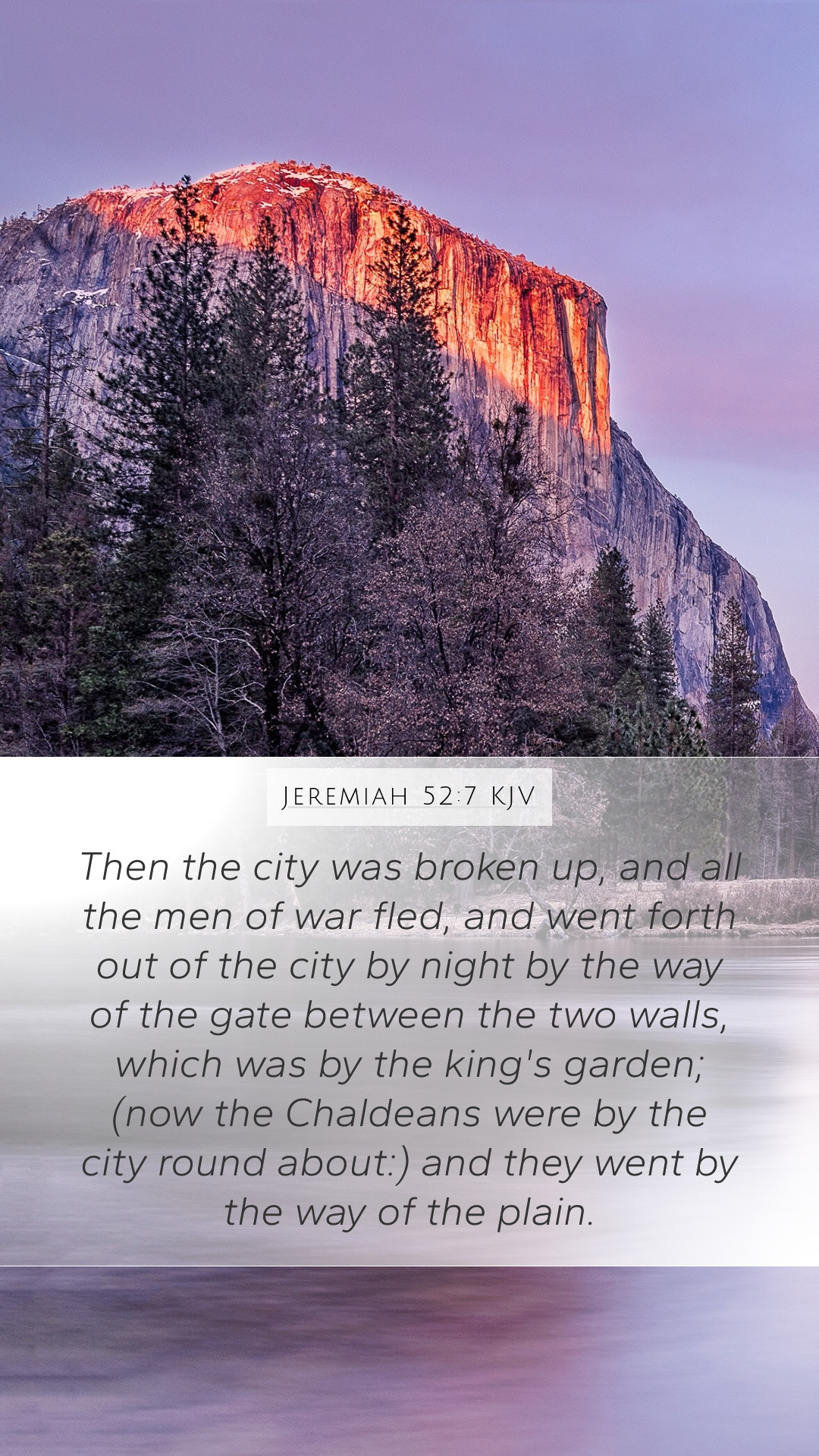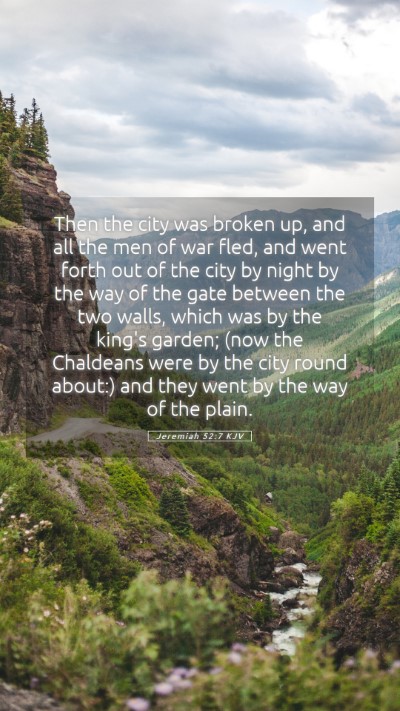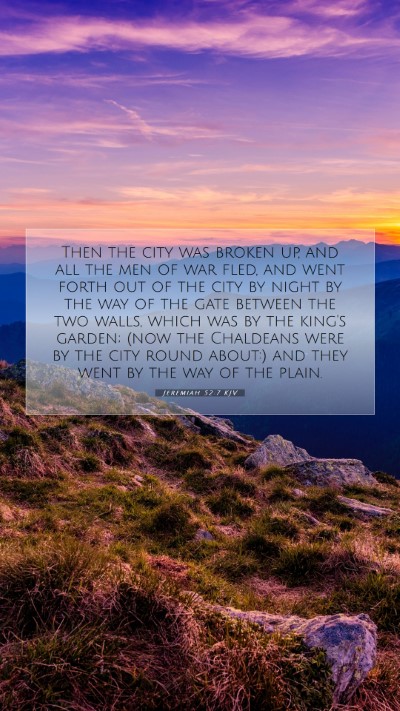Understanding Jeremiah 52:7
The verse Jeremiah 52:7 highlights a significant moment in the historical narrative of the Bible, capturing the essence of the destruction faced by Jerusalem. This verse serves as a poignant reminder of the consequences of disobedience and reflects the broader themes of judgment and restoration found throughout the Scriptures.
Verse Text
"Then the city was broken up, and all the men of war fled and went forth out of the city by night by the way of the gate between the two walls, which is by the king's garden; now the Chaldees were against the city round about: and the king went the way toward the plain."
Summary of Meaning
The interpretation of Jeremiah 52:7 can be summarized as follows:
- Historical Context: This verse occurs during the Babylonian siege of Jerusalem, marking a critical moment in Jewish history. The city's fall symbolizes the culmination of years of prophetic warnings concerning idolatry and turning away from God.
- Consequences of Disobedience: The fleeing of the men of war illustrates the dire consequences faced by the people due to their rejection of God’s commandments. It signifies not only physical defeat but spiritual implications as well.
- A Sense of Urgency: The choice to flee at night indicates a desperate situation, emphasizing the panic and need for immediate survival among the inhabitants of the besieged city.
- Divine Judgment: This event serves as a reminder of God’s sovereignty and the fulfillment of His word, as seen throughout the prophetic literature, particularly in relation to the consequences of national sin.
Commentary Insights
Matthew Henry's Commentary
Matthew Henry emphasizes that the breaking of the city illustrates not only a military defeat but also a spiritual collapse. He notes that despite human efforts, the consequences of divine judgment are inevitable when the people turn away from God.
Albert Barnes' Commentary
Albert Barnes offers insights into the geographical significance of the escape route taken by the soldiers. The mention of the gate between the two walls indicates strategic considerations in warfare, fulfilling the prophecy regarding Jerusalem’s downfall.
Adam Clarke's Commentary
Adam Clarke provides a thorough examination of the text, noting the historical realities faced by the people of Jerusalem. He comments on the implications of the Babylonian captivity and the importance of this passage for understanding God’s plans for restoration despite the dire circumstances.
Cross References
This verse can be cross-referenced with the following:
- Jeremiah 39:4-5: Additional details on the siege and capture of Jerusalem.
- 2 Kings 25:4-5: Similar account of the city's destruction.
- Ezekiel 12:5-6: Prophetic actions illustrating the exile of the people.
Applications and Reflection
As we explore the meanings and implications of Jeremiah 52:7, several applications may arise for personal reflection:
- Recognizing Consequences: Understanding that disobedience to God's word can lead to dire consequences, both personally and collectively.
- The Importance of Repentance: This verse reminds us of the need for constant self-evaluation and returning to God in humility.
- Trusting in God's Plan: Despite the darkness represented by this moment in history, God always has a plan for redemption and restoration.
- Courage in Crisis: The actions of those who fled may prompt us to consider our own responses to crises and our willingness to seek safety and refuge in God.
Conclusion
In summary, Jeremiah 52:7 serves as a powerful declaration of the realities faced by those who turn away from God. Its implications resonate throughout the Bible, urging readers to embrace a life of obedience and faithfulness. Instead of despairing at the signs of judgment, we are invited to find hope in God’s enduring mercy and the promise of restoration that follows even the darkest times.


